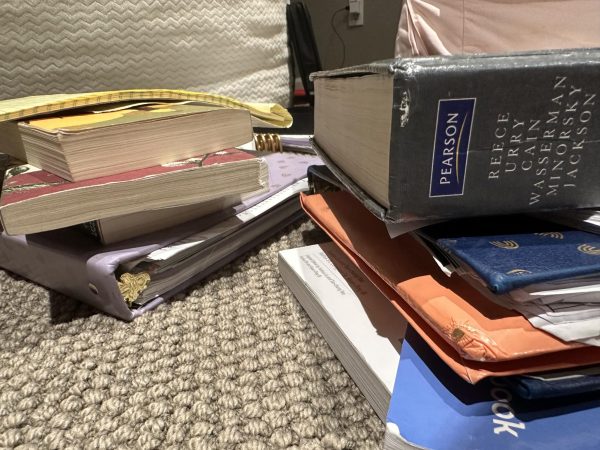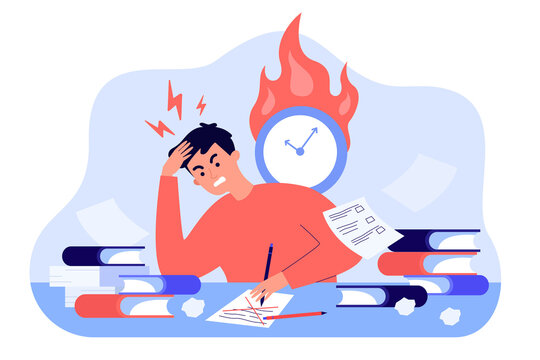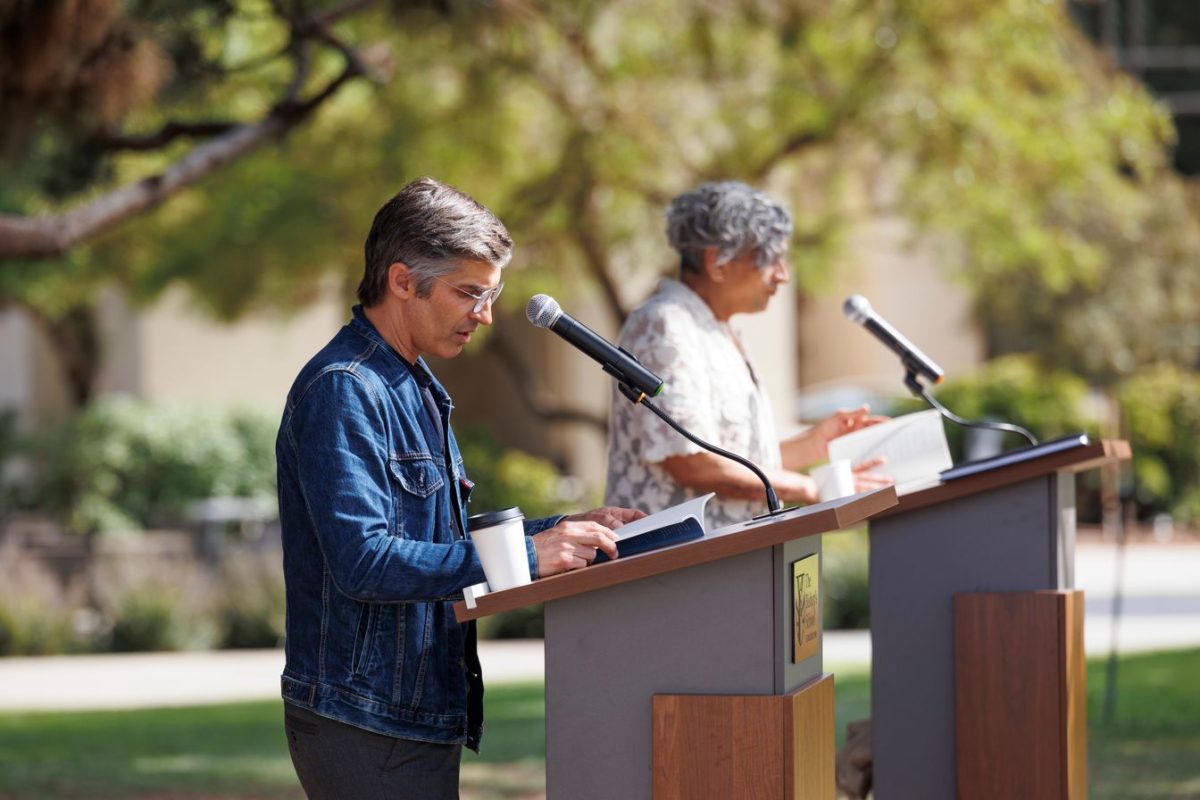Are you feeling the burn? As cumulatives and the holidays kick into full swing, burnout starts to fester among the student body. Director of Teaching and Learning Dr. Stephanie Ramos believes that burnout is a result of “overextension” or trying to do too many things at once. But during a time like cumulatives, when this “overextension” feels almost impossible to avoid, how can students look out for their mental and physical health?
Dr. Ramos defined burnout as “when you are too tired, either physically or mentally, to be productive in any sort of way.” She said, “It’s your body telling you to stop, to slow down.”
From a student’s perspective, Gabby Anderson (‘25) described burnout as the feeling of having many activities or assignments occur one after another. “There’s constantly something else,” she said, “it’s like this endless cycle of things that eventually gets to the point where you just don’t have the capacity to keep [doing work].”
Reyn Harmon (‘25) described it as being “done with everything.” He noted that, “When I’m burnt out I lose all energy.” Reyn expressed frustration with the idea of coming home and doing homework, regardless of his burnout. This loss of energy, Gabby said, can prevent students from doing what they enjoy.

(Summer Hu)
Burnout can lead to procrastination — further building up that already high pile of work sitting in your assignments center on Blackbaud. The World Health Organization (WHO) defined burnout as an occupational phenomenon, but this can also apply to school-settings.“Burn-out is a syndrome conceptualized as resulting from chronic workplace stress that has not been successfully managed,” WHO said. Procrastination can lead to this unsuccessful management of work.
“No matter how much of a schedule or timeline I have, I can’t bring myself to do the task I need to do,” Gabby said. She then reverts to “just doing anything you can that isn’t school-related to be able to escape.” These included “mindless” things like scrolling through social media feeds.
Dr. Ramos referenced the idea of “fight or flight” responses to explain the reasoning behind this procrastination, adding another state: freeze. “When you are doing nothing for a long stretch, [your body] sort of mimics that freeze response,” she said “your body knows it has to do something, but it doesn’t really know what, so it’s paralyzed.”
In addition to the impact it has on your productivity, burn out can also prevent you from studying effectively. “Burnout results in less effective and efficient processing of information,” Dr. Ramos said, “Your brain just doesn’t have the capacity.” According to Albert Einstein College of Medicine, “Study burnout reduces your productivity and saps your energy, and may leave you feeling increasingly hopeless, powerless, cynical, and resentful.”
“I lose so much motivation and find myself producing a lot of half-a** work,” Reyn said, confirming the effect of burnout.
Unfortunately, burnout can lead to negative effects, not just on a student’s grades, but on their mental and physical health, according to Dr. Ramos. Lack of sleep due to burnout is one of the biggest consequences. “If you are burnt out and unable to sleep, then you are also going to put yourself at risk for physical issues,” Dr. Ramos said. Some of these include headaches, a weaker immune system, and high blood pressure, according to WebMD. She added, “Sleep is when your brain repairs, restores and, most importantly for a lot of students, moves information from short-term memory to long-term memory.” Dr. Ramos also said that burnout can even put students at risk for hurting themselves.
However, there are resources on campus to help combat burnout. According to Dr. Ramos, last year, the learning center, which she staffs alongside Ms. Jane Mattox, and Ms. Jennifer Miller, met with 52% of the student body, a large increase from previous years. Ms. Ramos believes this is due to the larger awareness of not only the learning center on campus, but also of mental health in general. “Students are looking for ways to better their well-being,” Dr. Ramos said. At the learning center, students can find support, whether that’s through accommodations, study strategies, extra help through the SAGE tutoring program, or “school-related anxieties,” as the Bishop’s website states.
“Asking for help is a sign of maturity…Everyone needs help sometimes,” Dr. Ramos said. “Asking for help is not a sign that you can’t do it, it’s that right now, you need some support,” she added. If not the Learning Center, Dr. Ramos recommended that students find a trusted adult — whether that be an advisor, parent, or teacher — to help combat burnout.
Providing guidelines as to how students can approach that conversation, she said to start by talking about “how to balance what you want to do, what you need to do, and what you’re capable of doing.”
However, the first step to that process is identifying the burnout, she said. While there are certain markers that can identify burnout (like the amount of sleep or energy one has), Ms. Ramos said that the symptoms can vary. “You have to know what your pattern is,” she said.
Gabby found that after she could recognize her burnout, she was able to then “try to take more proactive steps to avoid getting there in the future.”
And because it’s all too easy to forget sometimes, a reminder to take care of your own mental and physical health, when you’re on your own. “Make sure you’re getting sleep, make sure you’re eating properly, getting exercise. All of those things help mitigate burnout and are effective as learning techniques,” Dr. Ramos advised.
If you are feeling burnt out, just know you are not alone! If students recognize and reach out to resources on campus, winter break will come in no time. There’s light at the end of the tunnel, knights!








